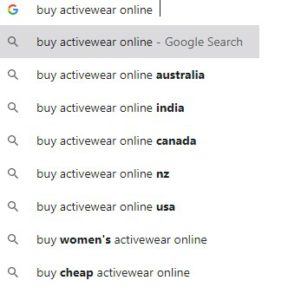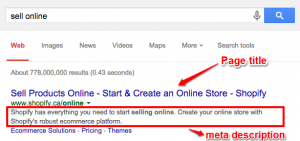The digital world is a competitive one, and learning to master your on-page optimization is the key when it comes to rising through the ranks of Google and beating out your competitors. Consistent on-page optimization is crucial, especially as search engines continually evolve their algorithms to push the most relevant search results to users. Understanding and implementing on-page optimization techniques that help to push your content to the top of the search rankings is vital if you’re wanting to stand out from the crowd in the online sphere.
If you’re wanting to understand on-page optimization and learn exactly how to optimize your website to stand out from the competition – you aren’t alone! In this guide we will take you through the core aspects of on-page optimization so you can attract more organic traffic and take your search engine rankings to the next level.
So what is on-page optimization?
Before we get into the nitty gritty of specific strategies, one of the most important things to understand is what on-page optimization actually is and the role it plays with SEO. On-page optimization is the process of optimizing your individual web pages to help improve overall visibility and relevance for keywords or topics.
Whilst off-page optimization involves using external factors to help you climb up the Google rankings – like backlinks – on-page optimization revolves around optimizing sections of copy or elements directly within your website.
Essentially it works by fine-tuning elements of your webpage, this could be anything from content, title tags, meta descriptions, URL structure, internal links and image descriptions to help improve crawlability, indexability and overall visibility of your webpage by search engines to help push you up the rankings.
What’s the role of content?
Content is one of the foundations when it comes to on-page optimization, and it plays a big role in attracting not only search engines, but also human visitors to your webpage. When you are writing or optimizing content, there are a few things to keep in mind, specifically you want to make sure you have high-quality, relevant content that works in two ways. The first way is to help search engines understand what your website is about and the overall relevance of your webpage, and the second is to help engage and inform your human audience so you can get more visitors who spend more time on your site, reducing your overall bounce rate.
There are a few key considerations when you’re optimizing website content that you should keep in mind for the best results. These are the considerations you need to make when optimizing your content:
Keywords
Make sure you conduct thorough keyword research so that you can fully understand the terms and phrases your audience is looking for. Utilise tools like Ahrefs to help you identify the high-volume keywords that you want to rank for to include in your on-page website content.

Relevance & Quality
Writing a bunch of nonsensical jargon that includes your keywords isn’t enough when it comes to getting good, solid rankings. You want to make sure that your content provides genuine value to your audience. Try to address their pain points, answer their most common questions and deliver engaging content that keeps people coming back to your website over and over again.
Formatting
Make sure to structure your content in a way that is both readable and SEO friendly by including headings, subheadings, bullet points and concise paragraphs. Using descriptive headings is crucial when it comes to guiding both users and search engines through your content.
Include Visuals
Add to your content by including any relevant images, videos, datasets, and any other multimedia elements you have on hand. You’ll also want to optimize the image filenames and optimize the alt text and the captions to improve keyword relevance and also make your content more accessible.
Make Regular Changes
You don’t want to have a bunch of old, stale, no-longer-relevant content sitting on your website taking up space that could be filled by relevant, ranking information. Keep your content fresh by regularly posting new articles, updating existing content and addressing any outdated information as soon as possible. Search engines favour sites that have ongoing relevance and authority rather than those that have years’ old content that hasn’t been updated or refreshed.
Maximise Your Impact with Title Tags
Website content isn’t the only key factor when it comes to on-page optimization, title tags also play a crucial role when it comes to influencing your rankings and your click-through rates (CTAs). Title tags AKA meta titles are the clickable headlines people see in the results page.
If you’re wanting to optimize your title tags to improve your SEO performance in Sydney , there are a few different factors you’ll want to keep in mind to ensure you’re following SEO best practices.

Keyword Placement
Make sure you’re including your target keywords at the beginning of the title tag to ensure maximum visibility. You do want to avoid keyword stuffing though as stuffing your title tag or having a title tag that is difficult to read could hinder your rankings rather than help them.
Keep It Concise
When writing title tags you want to make sure they are clear and concise. Keep them around 50 characters to make sure they display property and use clear language that is accurate to the content on the page and gets users to click.
Add Some Personality
The digital world is oversaturated, and you want to make sure your title tags are generating clicks. Craft compelling and unique title tags for all your pages and avoid duplicates. Use your title tags to reflect your brand’s personality and encourage searchers to engage with your content rather than a competitor.
Ensure Brand Consistency
When writing title tags, you will want to include your brand name in the title, especially for your homepage or any core landing pages. This helps to reinforce your brand identity and helps to improve brand recognition in the search results!
Carry Out A/B Testing
For the best results, you’ll want to continually monitor and test a bunch of different variations of title tags to find the most effective ones for CTR and overall rankings. Regularly test and make data-driven adjustments to your title tags over time to stay relevant and to keep your website ranking above your competitors.
Use On-Page Optimization To Get Ahead
When it comes to getting ahead of your competition, mastering on-page optimization is essential. When you focus on elements like content and title tags you can enhance your website’s visibility, relevance and overall performance in the rankings. To truly master on-page optimization remember to stay up to date with any key algorithm updates and SEO trends and update your on-page content accordingly.
If you’re wanting to stay ahead of the curve in the long term you have to remain consistent. Outline your strategic approach for on-page optimization and you can start to see real results. At Shout, our SEO Melbourne services can help you to optimize your on-page content, improve your rankings and achieve long-term sustainable growth!
